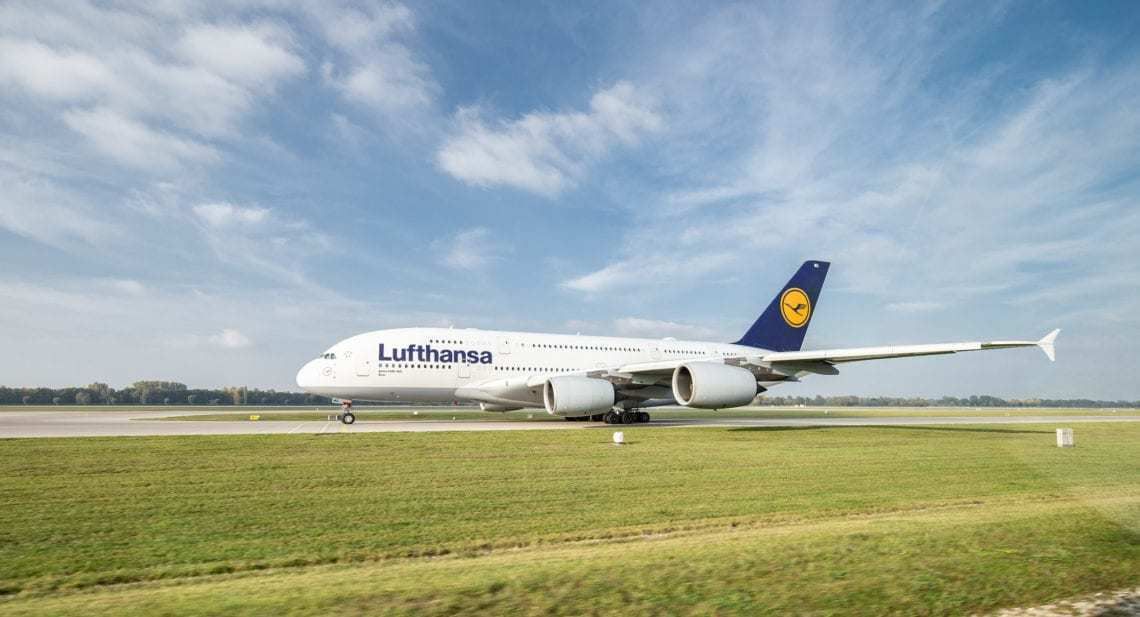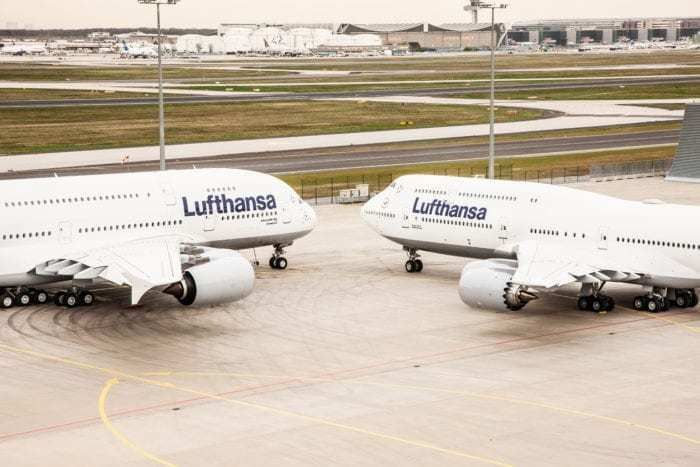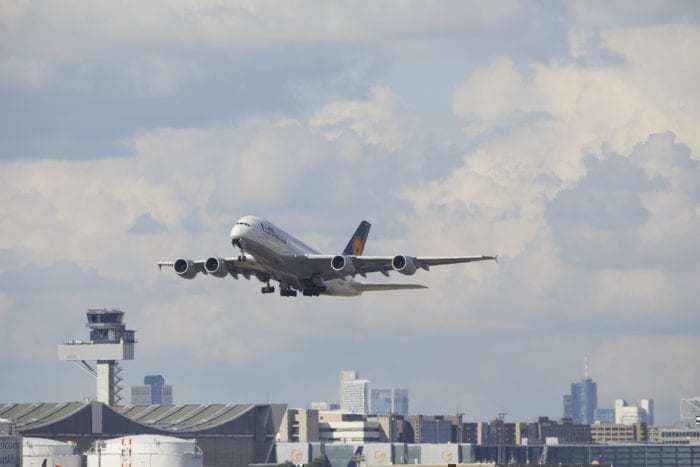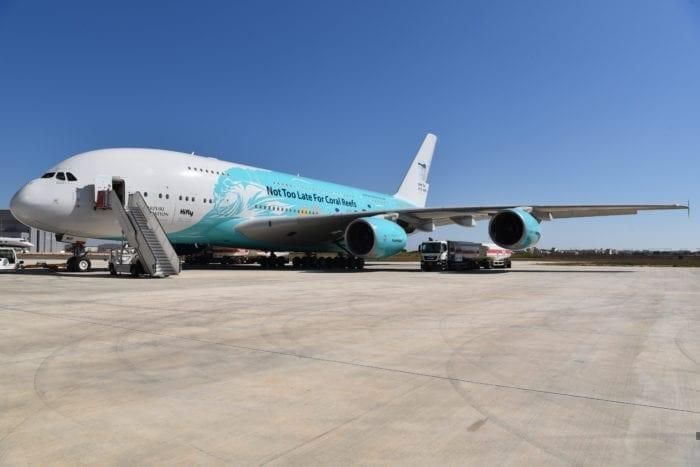Lufthansa have announced they will sell of six of their Airbus A380s in 2022/2023 for ‘economic reasons’. Airbus are said to be buying them back, which raises questions over what the plans are for these giant jumbo jets.
As part of the Lufthansa announcement of their $12bn order of new Boeing and Airbus planes, the group have also revealed they will be reducing their fleet of A380 aircraft over the coming years.
Lufthansa currently operate a fleet of 14 A380s, which will reduce to just eight once the sale of these aircraft goes through. The sale is slated to happen in the 2022/23 financial year, with Airbus said to be buying them back.
In a statement on their website, Lufthansa said:
“Lufthansa continuously monitors the profitability of its world-wide route network. As a consequence, the group is reducing the size of its Airbus A380 fleet from 14 aircraft to eight for economic reasons. The structure of the network and the long-haul fleet, fundamentally optimized according to strategic aspects, will give the company more flexibility and at the same time increase its efficiency and competitiveness.”
The production of the A380 will be scrapped by Airbus from 2021 following various order cancellations and a lack of demand for the jet. Newer, more efficient aircraft which are easier to fill are more appealing, leaving no buyers for the A380.
Why don’t Lufthansa want the A380?
Numerous carriers have confirmed they will be phasing out the A380 in favor of twin engined models such as the A350. The largest customer of the A380, Dubai based Emirates, recently switched their outstanding order to the smaller A350. Last month Qantas cancelled their order with Airbus too.
Simple Flying spoke to Lufthansa about the sale of the A380. Their spokesperson said that they were ‘big fans’ of the A380, and that both crews and customers loved the aircraft.
However, they also said that, as part of their ongoing business plan, it is important to evaluate profitability in their network. This includes efficient sizing of aircraft in line with market conditions. With the A380, they said, ‘profitability is only possible on the most high-demand routes’.
As we know, the A380 can be a tricky aircraft to fill to capacity. When full, it’s still one of the most efficient planes out there but getting enough bottoms on seats to make this happen is increasingly tough.
The move to smaller, highly efficient aircraft such as the A350 and the 787 will lower operating costs by an estimated 20%. However, Carsten Spohr also said this was not the only reason for their forthcoming fleet shake-up:
“In addition to the cost-effectiveness of the A350 and B787, the significantly lower CO2 emissions of this new generation of long-haul aircraft was also a decisive factor in our investment decision,” – Carsten Spohr, CEO, Lufthansa
Why do Airbus want the A380 back?
While the decision from Lufthansa to sell the A380 is somewhat simple to understand. What’s more perplexing is the decision by Airbus to take them back. One has to wonder what their plans are for this aircraft. Do they have a buyer lined up, plan to convert them to freighters or are they simply taking them back as part of the A350 deal?
We know that both Hi Fly and British Airways are in the market for second hand A380s, so perhaps this is part of the Airbus buyback plan?
Lufthansa were unwilling to comment on any links between the A380 sale to Airbus and their order for the A350. Simple Flying have reached out to Airbus for comment and have received the following statement in reply:
"Airbus supports and promotes the A380 second-hand market. We do not comment on discussions we might or might not have with our customers"
So, it's about as clear as mud. What do you think? Where will these A380s end up?




